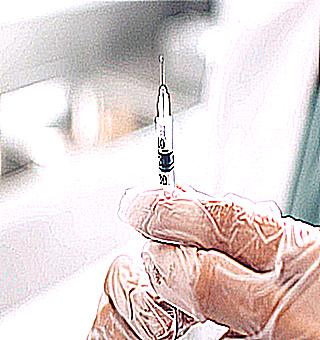Home >
Erectile Dysfunction >
Potency injections
Potency injections

Intramuscular and intracavernous injections are an effective method of treatment that allows you to return to the normal strength of sexual potency and erectile ability. Medical treatment is often undertaken for patients suffering from hormonal imbalances or other organic causes of impotence.
Substitution therapy using pharmacological drugs is prescribed by an andrologist and is carried out under his supervision. Approximately 60% of men who report a decrease in sexual desire were able to restore their previous libido strength as a result of undergoing injection treatment.
Hormones
Intramuscular testosterone injections are the most common treatment for insufficient testosterone production. Therapy with the use of hormone-replacing drugs may involve complex treatment, which includes: 1. taking tablet medications (pills and capsules); 2. the use of transdermal products (patches and gels); 3. implantation of subcutaneous implants.
Duration of drug action
Taking a series of injections to increase testosterone secretion means administering diluted short, medium and long acting medications. Short-acting drugs include drugs with testosterone propionate. This substance is injected into the gluteus muscle at intervals of 2-3 days. It has an immediate stimulating effect on the genitals, but its effect lasts for 48-72 hours. Sustanol is a medium-acting agent. The frequency of injections is every 3-4 weeks. The drug substance has a rather low rate of absorption into the blood due to the presence of essential components in its composition. A long-acting drug called testosterone undecaonate has an aphrodisiac effect for 10-14 weeks. He is able to maintain a sufficient level of testosterone for a long period, to ensure a gradual release of the hormone in the blood. The use of the drug does not cause sudden changes in hormonal levels, does not worsen the well-being of a man. The constant use of this drug relieves men from fluctuations in the emotional background and a sharp decrease in libido.
Side effects of injections
Testosterone injection therapy in the presence of contraindications can cause the onset:
- oncological lesions of the prostate
- local acne
- erictocytosis (increase in the content of red blood cells in the plasma)
- changes in the level of sexual potency
- priapism
- headache, sleep disorders
- depression, anxiety
- gastrointestinal bleeding, nausea and vomiting
- gynecomastia< / li>
Contraindications
Men are not allowed to receive testosterone injections if they have:
- hypersensitivity
- heart and coronary insufficiency
- prostate carcinoma
- diabetes mellitus
- liver and kidney function impairments< / li>
- increased swelling
- hypercalcemia
- urinary disorders
- atherosclerosis
Non-hormonal drugs
Substances are recommended for men who have difficulty developing erection and sexual arousal in response to stimulation of intimate areas. The action of drugs of the non-hormonal group is aimed at increasing the concentration of cAMP, reducing the rate of accumulation of intracellular calcium and relaxing smooth muscles. Pharmacological substances have a mild relaxing effect, stimulate the transmission of nerve impulses along the alpha-adrenergic pathways, and suppress the release of norepinephrine. As a result of the introduction of these medications, patients manage to improve blood microcirculation in the intimate area, to achieve a significant increase in the volume of the penis in an erect state. The drugs do not affect the rate of onset of ejaculation and the level of fertility of the male body, do not reduce the ability to fertilize an egg.
How to use
The amount of the drug injected into the penis at a time is 2.5-20 μg. The doctor calculates the optimal dose for each patient. After the introduction of the drug substance, a stable erection occurs, which lasts for 60 minutes. The medication in the form of a dry substance is diluted in a sodium chloride solution and drawn into a syringe. The frequency of injections is 2 times a week.
Contraindications
Treatment with injections is not recommended for allergies to the drug, Peyronie's disease and cavernous fibrosis, leukemia and sickle cell anemia.



























